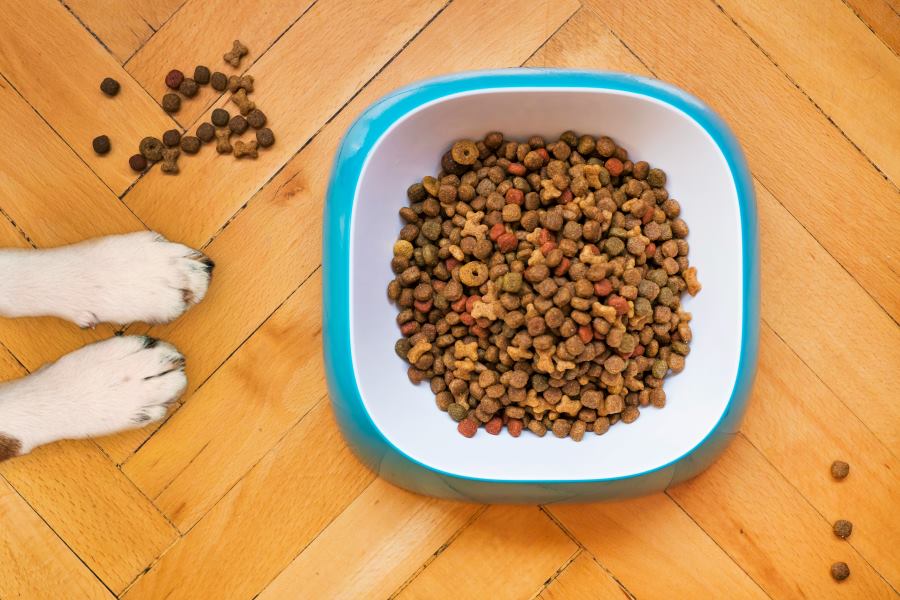Hello, animal enthusiast! If you have seen peculiar symptoms in your animal companion, it is like they have caught a medical condition known as Cushing’s illness. The individual expressed concern and tried to identify an appropriate remedy for the issue. Relax assured.
What foods should dogs avoid with Cushing’s disease? A Comprehensive Guide to Diet, Treatments, and Well-Being.
This guide provides a concise list of items that dogs with Cushing’s disease should avoid. What foods should dogs with Cushing’s disease avoid eating? An exhaustive manual on nutrition, therapies, and wellness.
We will explore the significance of the food your dog consumes for their well-being and provide simple suggestions to improve the well-being of your pet. The concept is readily understandable.
Looking for guidance on your dog’s diet or unsure when to seek veterinary attention? Perhaps you simply want tips to keep your pup happy and healthy. This article is here to be your comprehensive resource.
The Role of Diet in Managing Cushing’s Disease Or what foods should dogs avoid with Cushing’s disease?

Looking for the best food choices and overall health tips for your dog? This is a great topic to explore! However, it’s important to remember that some information online may not be tailored to specific health conditions. While this article might offer general advice, for a dog with Cushing’s disease, proper food and dietary recommendations should come from a veterinarian. Their expertise will ensure your pup receives the precise nutrition needed for effective treatment and a happy, healthy life.
Crafting the Best Cushing’s Disease Dog Diet:
To protect a dog’s health, picking an ideal diet for one with Cushing’s disease is like picking all of their favorite meals. It all comes down to picking meals that are beneficial to health and help individuals manage with their condition Selecting meals for a dog’s dish becomes essential to managing Cushing’s disease.
What Foods to Avoid with Cushing’s Disease Dogs:
Does Cushing’s illness affect your dog? It upsets their hormone balance. But you need not worry; choosing an appropriate diet can have a vital impact on your loved one’s health!
Skip the scraps! Healthy pet food in their bowl keeps them happy and strong.
- Skip the Sugary Stuff: Ditch refined pastas, white bread, and sugary treats. These can exacerbate hormonal problems in your dog and cause a blood sugar increase.
- Cut Back on Fat: Avoid processed foods and fatty cuts of meat. These foods can worsen Cushing’s symptoms by promoting weight gain and inflammation.
- Go Easy on Protein: While protein is important, too much can put extra stress on your dog’s kidneys, which are already working harder with Cushing’s disease.
Focus on these beneficial foods instead:
- Lean Protein Powerhouses: Skinless chicken, fish, and turkey are excellent choices. Kidney issues? Easy-to-digest protein keeps your pup strong and your kidneys happy.
- Fight Inflammation with Fats: Fish oil and flaxseed are fantastic sources of omega-3 fatty acids. These yummy bites fight inflammation to keep your pup comfy.
- Long-Lasting Energy with Fiber: Fill your pup’s bowl with high-fiber vegetables like sweet potatoes, brown rice, and oatmeal. They give you steady energy without making your blood sugar rise.
Medical Treatments and Alternatives:
Let’s explore the two main ways to do that:
Medical Treatments
| Details |
|---|
| – Trilostane (Vetoryl): Common choice to regulate cortisol production in adrenal glands. |
| – Mitotane (Lysodren): Another option with stronger side effects; discuss carefully with your vet. |
| – Other Medications: Some vets might use selegiline or ketoconazole alongside main treatments. |
Important Medication Points
| Details |
|---|
| – Not a Cure: Medications manage the disease but don’t cure it completely. |
| – Long-term Commitment: Your dog will likely need medication for their entire life. |
| – Regular Monitoring: Crucial vet checkups to adjust dosages and monitor effectiveness. |
Alternative Approaches
| Details |
|---|
| – Dietary Changes: Emphasize lean protein, complex carbs, and healthy fats for overall health and support. |
| – Supplements: Fish oil or milk thistle might offer extra benefits, but consult your vet first. |
Long-term Considerations and Prognosis:
Caring for your Cushing’s dog is a journey, not a race. Frequent blood tests and veterinarian visits aid in monitoring their health and adjusting medication. Even though Cushing’s disease is serious, your pet may have a long, happy life if diagnosed and treated early.
Additional Insights and Resources:
Looking into further information and resources can enable you to give your Cushing’s disease-afflicted dog greater knowledge and assistance. Let’s analyze it:
Additional Insights:
- Learning More: There’s always more to discover about Cushing’s disease. You can ask your vet questions and seek additional information online or from reliable sources.
- Observing Your Dog: By monitoring any changes in your dog’s behavior, you can gain insight into their emotional condition. Inform your veterinarian of anything unusual you see.
Resources:
- Your vet’s the MVP: They’re your dog’s healthcare champion, guiding you through the best care plan for their Cushing’s.
- Online Pals: Find communities and forums where pet owners with Cushing’s pups share experiences and support.
- Knowledge is power. Reliable articles and resources can help you understand Cushing’s disease and make informed decisions.
Conclusion
It’s not necessary to sacrifice a dog’s happiness in order to care for one that has Cushing’s disease. You can make certain your dog grows well with a few changes! Pay close attention to the diet you design with your veterinarian, adhere to their advice, and don’t forget that routine exams with the vet are essential.
Expect some ups and downs because every dog’s path is different. However, you may build a joyful and meaningful life with your furry buddy if you do your research, keep in touch with your veterinarian, and offer them lots of affection. The secret to keeping your dog’s tail moving is your commitment.
